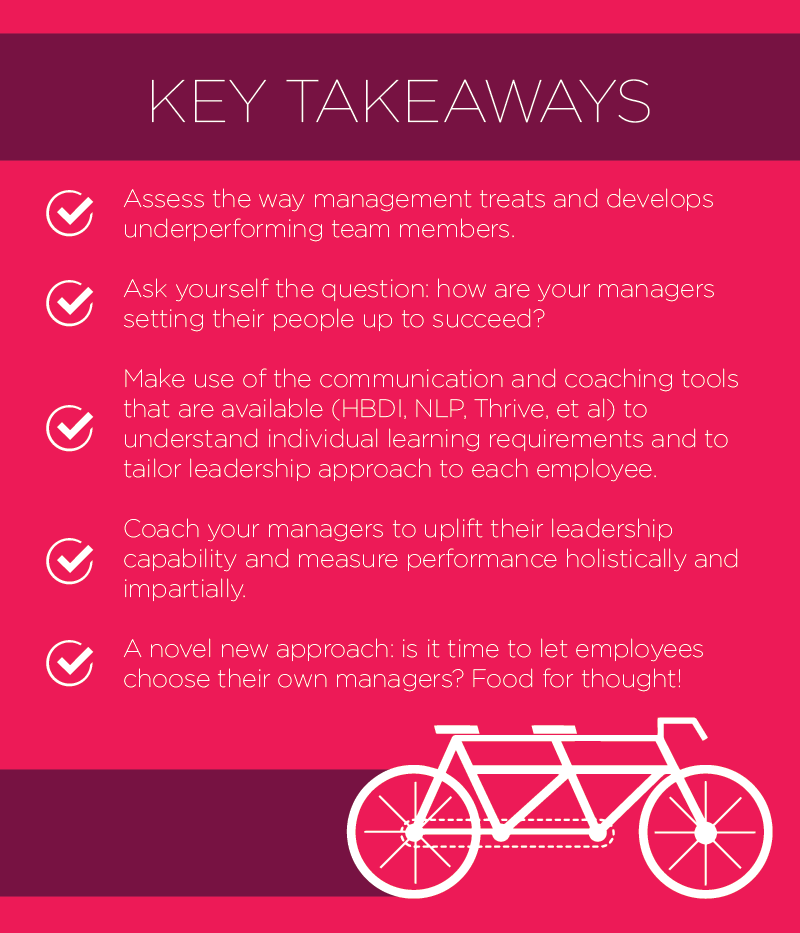People don't leave their jobs, they leave their managers
A bold claim, but we hear it a lot. When employee performance and engagement levels are low, HR’s role is pivotal in assessing the full dynamic, including the manager’s capability. The 360-degree feedback model has revolutionised the traditional top-down system. Employees can now rate their managers’ performance and voice their dissatisfaction anonymously.
Leadership capability uplift is a key focus for HR. To lead effectively, managers need to resist their instincts, measure performance impartially and build rapport with all direct reports, including those who they don't naturally gel with. It’s a seriously tough gig! Ideally we would be able to lift all managers to this capability level, but in reality managers are only human. Some struggle more than others to put ego, emotions and personal perspectives to the side.
Is it time to scrap the traditional system and let employees choose their own manager?
What if HR could match the employee to a manager of their choice? A manager who inspires them effortlessly, who genuinely values their ideas and strengths, empathises with their struggles, coaches them effectively, and encourages them to take risks and learn from failures. The perfect recipe to boost self-esteem, increase engagement and encourage innovation. Could that increase performance outcomes? In my previous role as an internal recruiter, I had the pleasure of partnering with an empowering leader who implemented this model, giving over 50 people in his department a choice of manager and mentor.




